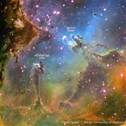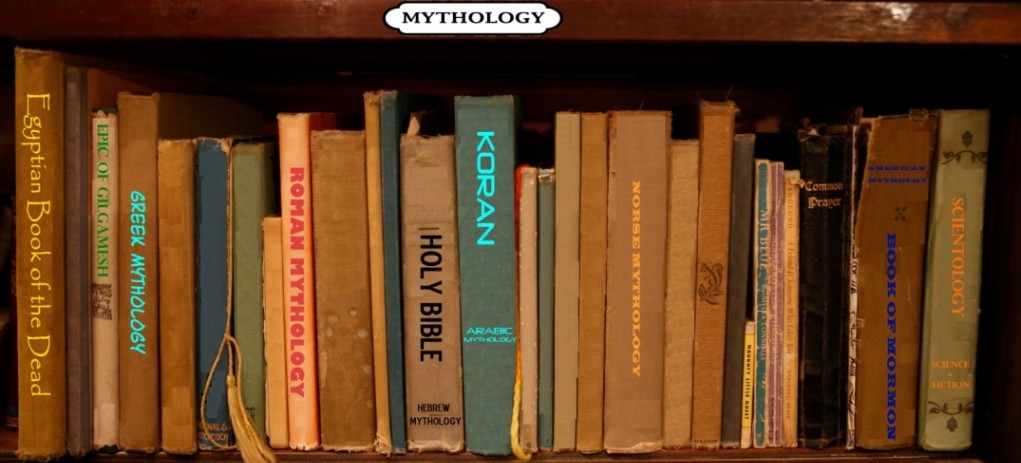
Michael Werner past-president of the American Humanist Association warns us of the dangers of Scientism in the May-June 2014 issue of “the Humanist“.
The more I read on the controversy of the alleged dangers and dominance of Scientism over the Humanities as “ways of knowing” I readily admit I am an unabashed “Scientismist.”
Werner goes down the same path as the philosopher Massimo Pigliucci in claiming that “we disregard the humanities at great loss” and decries the fact that many of us in the secular movement are “only interested in reading non-fiction and, more specifically, important scientific books.”
This bothers Werner and folks like Pigliucci. Werner considers music, literature, art, drama, architecture, and poetry as more than just sources of pleasure, he insists “art entertains, but it also opens doors to knowing” such as “Shakespeare tells us more about human character than most psychological science.”
While Shakespeare is recognized as one of humanity’s best (to many THE absolute best) of writers and dramatists, and an astute observer of human nature, I’d suggest modern psychology, especially the humanistic approaches of the last 50 years, has discovered just as much if not a whole lot more about the human character. Psychology may not convey it as poetically, but I take issue with the claim Shakespeare tells us more. If Werner prefers the “Bard of Avon” to rap music, groovy, but I think he conflates artistic preference and appreciation of the exploration of unrealistic patterns explored in all art with actual “knowing.”
Art, be it painting, or music, or literature is an examination, an extrapolation if you will, a creative exploration of forms and patterns based on what is found in the world, but is precisely not forms or patterns that are found in the world: that’s what makes it art.

Good art evokes powerful emotions and stimulates the mind in presenting such unrealistic expansions of reality. It is a way of experiencing and feeling, and quite wonderful and redeeming for many of us, even us dastardly scientismists, but it is not a “way of knowing” about the real world. It is fantasy and imagination, not data.
The empirical approach of science, observing the real world, collecting reliable data, theorizing and testing our theories against reality is how we learn about how the world actually is. Art looks at possibilities as an expansion of reality, but however enjoyable and uplifting, it may really tell us nothing about the real world.
It is not an alternative way of knowing reality. It is an exploration of unreality, that’s why its called art: they don’t call it “fiction” for nothing.
Additionally, I will readily admit to being one of those folks Werner is surprised and dismayed to report who find little to no time for fiction. I enjoy it, having read “Zen and the Art of Motorcycle Maintenance” at least a dozen or so times over the years, but confine my reading to yes, mostly science and secularism topics nowadays. I find the stories of science and the intricate knowledge itself to be as uplifting and inspiring as any work of fiction. And I am moved by the Blues, Pink Floyd, Frank Zappa compositions and Mozart and Rossini, and the subtle yet surreal patterns of impressionistic art, but will confess to not having read Shakespeare or many of the classics since high school. I can live just fine without ever reading or seeing a Shakespeare play. It is not on the bucket list. The pyramids, volcanoes, and Paleolithic Cave Art are. I’ve seen Floyd and Zappa, so I can die happy.
I find the patterns and forms of reality that we are discovering and conveying to each other through all media, written and visual, especially through the Net, to be as compelling and uplifting as any art. I suspect those of us who Werner decries as dismissing fiction, get our rush, our emotional journey of exploration through the exponentially increasing examination and presentation of reality.

Images from the Hubble telescope of course quickly come to mind as rivaling any art in breathtaking scope and beauty, and these images of the Cosmos are even more compelling precisely because they are real.
However, even without the staggering visual impact of Hubble images, our modern science discoveries are epic stories in their own right. Consider the complexity, magnitude and yes, sublimity of the recently mapped human genome. It’s breathtaking and all the more wondrous as it is a real pattern of nature, sublime and complex at so many levels, just like good art, and the story of the monumental effort and technological achievement in mapping the human genome is an epic story of creativity and perseverance against all odds rivaling the mythic poems and stories of old.
In the old days, fiction and the visual and auditory arts weren’t challenged by the stupendous and in themselves phenomenally creative and compelling discoveries of modern science.
Another oft-repeated gripe Werner also echoes is that:
“Many times a purely scientific approach leads some to mere reductionism, whereas the humanities enlighten us on the emergent complexities of life from hearts that ache, hearts that soar, our longings for better life, and the moral life within.”
I just love that pejorative “mere” stuck onto “reductionism.”
Why is reductionism so damn bad? It more than any human endeavor reveals the complexities of life as we know it, and the rainbow is not unwoven but envisioned in its even greater glory precisely because its underlying complexity. All of scientific discovery does this. Reductive explanations are as fantastic as any creative act. Understanding the staggering complexity of the neuron in no way diminishes the phantasmagorical operations of the mind or its products.
This just sounds like more lame whining, worthy of Pigliucci’s carping.
One commenter on the article just nailed it for me:
“It sounds like you are supporting a kind of revelation as a way to gain knowledge about reality or perhaps spiritual atheism. Certainly there are benefits to studying and enjoying the arts, and they may reveal an emotional or personal truth of sorts, but surely they say nothing about the objective nature of reality.”
’nuff said.


It’s all good.
(788)
